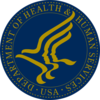Federal Register
Posted: October 11, 2017
The Indian Health Service (IHS) Office of Clinical and Preventative Services, Division of Behavioral Health (DBH), is accepting applications for a cooperative agreement for Youth Regional Treatment Center Aftercare Pilot Projects (Short Title: Youth Aftercare). This program was established by the Consolidated Appropriations Act of 2017, Public Law 115-31, 131 Stat. 135 (2017). This program is authorized by 25 U.S.C. 13, the Snyder Act, and the Indian Health Care Improvement Act, 25 U.S.C. 1665a and 1665g. This program is described in the Catalog of Federal Domestic Assistance (CFDA) under 93.933.
According to data from the CDC Youth Risk Behavior Surveillance Survey, American Indian and Alaska Native (AI/AN) youth self-report higher rates of illicit substance use when compared to the general population. Substance use among AI/AN youth contributes to an increased risk of negative social problems that can range from delinquency to violence, including higher rates of suicide, and alcohol and drug-related deaths when compared to U.S. all-races (2014 Trends In Indian Health).
The IHS currently funds 11 Youth Residential Treatment Centers (YRTC) that provide a range of clinical services rooted in culturally relevant, holistic models of care. However, once AI/AN youth are discharged from the YRTC, they are faced with leaving a structured environment only to return home to families who may be unprepared to offer the needed support and where aftercare/case management resources can be limited.
More Notices
Notice of Cancellation of Environmental Impact Statement for Proposed Coquille Indian Tribe Fee-To-Trust and Gaming Facility Project, City of Medford, Jackson County, Oregon
Energy and Mineral Development Program (EMDP); Solicitation of Proposals
Public Water System Supervision Program Revisions for the Navajo Nation
Notice of Public Meeting of the Alaska Advisory Committee
Migratory Bird Hunting; Migratory Bird Hunting Regulations on Certain Federal Indian Reservations and Ceded Lands for the 2020-21 Season
Solicitation of Nominations for Membership To Serve on Tribal Advisory Council
Final Waivers and Extensions of the Project Periods for the American Indian Vocational Rehabilitation Services Training and Technical Assistance Center
Agenda and Notice of Public Meeting of the South Dakota Advisory Committee
Complete Archive
Energy and Mineral Development Program (EMDP); Solicitation of Proposals
Public Water System Supervision Program Revisions for the Navajo Nation
Notice of Public Meeting of the Alaska Advisory Committee
Migratory Bird Hunting; Migratory Bird Hunting Regulations on Certain Federal Indian Reservations and Ceded Lands for the 2020-21 Season
Solicitation of Nominations for Membership To Serve on Tribal Advisory Council
Final Waivers and Extensions of the Project Periods for the American Indian Vocational Rehabilitation Services Training and Technical Assistance Center
Agenda and Notice of Public Meeting of the South Dakota Advisory Committee
Complete Archive

